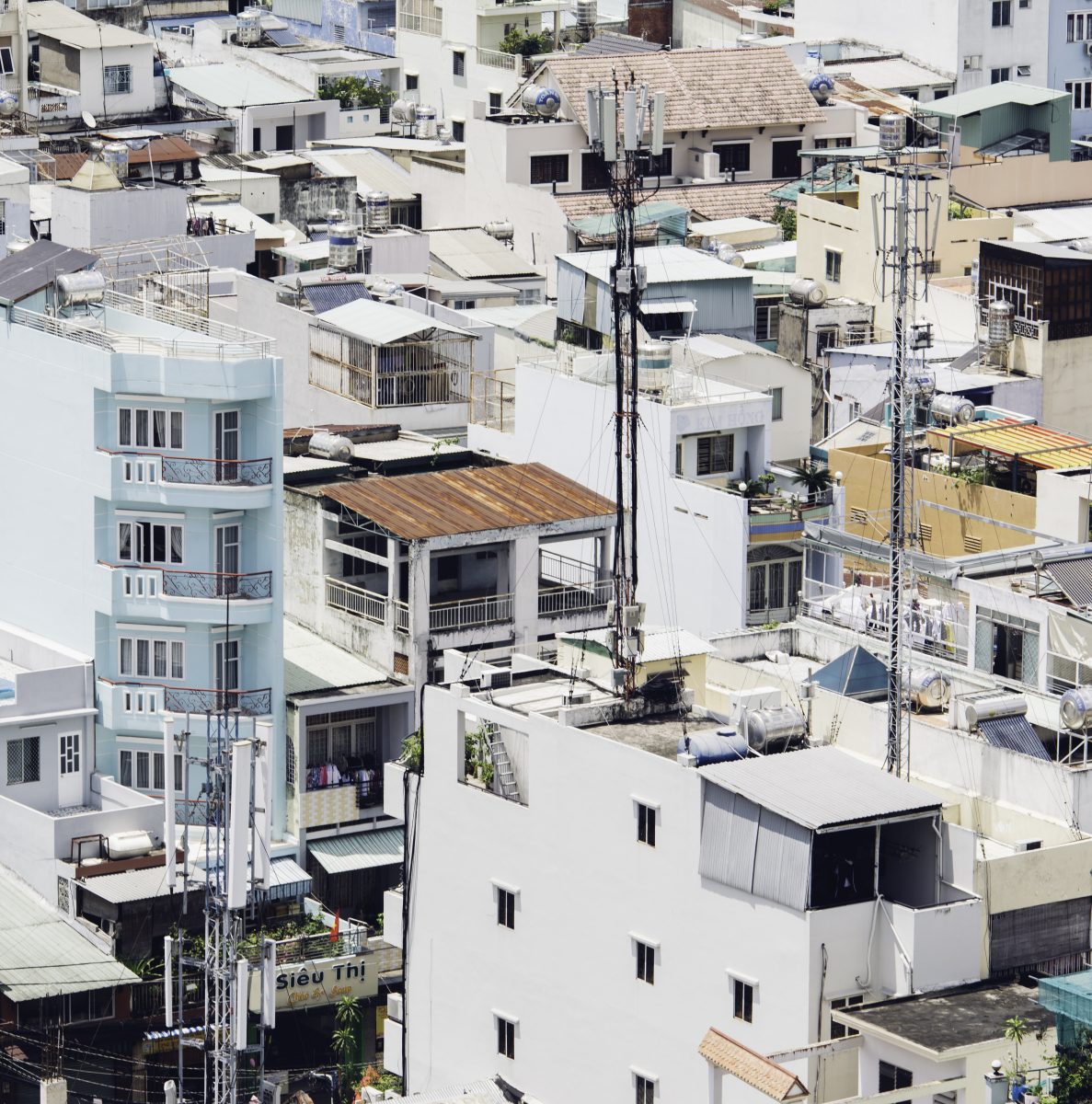While a majority of the U.S population identifies with the American Dream, young Chinese and Taiwanese students pursue their own version. However, there’s a catch: living the Chinese Dream only requires a U.S. degree. For nearly three decades, the popular appeal attached to American degrees among Chinese and Taiwanese employers would easily secure one a job. Today, this is no longer the case. Plus, getting to the U.S. isn’t as alluring when these international students realize the hard work needed for this dream starts when they are children.
Countless pages of homework, endless hours of studying and constant bickering from parents–this is reality for international students before arriving on U.S. soil. Ruby Yang, Sam Hsu, Pengcheng Wang and Xinpei Sun all endured laborious education and committed long years because they believe in the Chinese Dream. It stands in stark juxtaposition to the American Dream, where one can work their way from the bottom rungs of the socioeconomic ladder to achieve prosperity at the top.
Ruby Yang, 25, is a Taiwanese student studying at the American English Institute at the University of Oregon. Growing up in the Westernized environment of Taiwan, Yang grew up surrounded by advertisements selling American products and styles. Media swayed her decision to attend a U.S. university.
“You start learning about America as kids, from your family,” Yang says. “My parents always told me in America, there are opportunities for me to grow and learn more in the education system, while in Taiwan, it was all memorizing facts and dates.”
Yang regards the stark differences between the U.S. and Chinese/ Taiwanese education systems as the second most alluring aspect of why she’s in the country.The first is how it translates into jobs for the Chinese and Taiwanese graduates with U.S. degrees back home. However, reports in recent years reveal that walking into an interview and hoping one’s U.S. degree will be the X factor doesn’t cut it for employers anymore, unlike in the 80s and 90s when it placed one above their competitors.
Yang and Hsu are Taiwanese whereas Wang and Sun hail from China. Both represent a growing trend of U.S. graduates, predominantly from China, who aren’t finding jobs back in their home countries. Once coveted, foreign degrees no longer promise jobs. A limited, competitive job market in China, Taiwan and Hong Kong, due chiefly to many people already possessing U.S. degrees, causes students to reconsider their plans of attending U.S. universities.
“Mainland China in the 80s, the slogan was ‘Serve the country by returning home,’” says Brandon J. Folse, a Ph.D. student in the Sociology Department at the University of Oregon who taught English in China for ten years. “Then, in the 90s, then-Chinese president Jiang Zemin changed it to ‘Serve the country from abroad.’”
Folse became acquainted with the Chinese Dream after sharing stories about the U.S. to some of his students. He notes that what once indicated intellectual prowess and strong social status during the early 90s and 00s is no longer convincing for Chinese employers. In Taiwan, a limited job market makes it difficult for students seeking positions after graduation. This is the case for those with foreign as well as domestic degrees, and overpopulation has resulted in an insufficient amount of jobs on the island-nation.
According to the Institute of International Education, over one million international students studied in U.S. colleges in the 2015-2016 academic school year; 328,547 were Chinese and nearly 22,000 were Taiwanese. Furthermore, China’s Ministry of Education notes that out of the 544,500 students who studied overseas in 2016, nearly 80 percent returned home.
Folse notes that Zemin’s endorsements for the Chinese Dream, in general, has encouraged Chinese citizens to travel or study in the U.S. For them, the U.S. represents an awe-inspiring destination and a beacon of western lifestyle.
More than 350,000 international students attended U.S. universities between 2016-2017, according to the Open Doors report by the Institute of International Education, a nonprofit association backed by the U.S. government. The Chinese Dream emanated from this period of China opening up to the world, as then Chinese president Deng Xiaoping believed the country needed economic and industrial modernization. His belief thus introduced foreign businesses to Chinese audiences with western media and concepts. Although distinctly Chinese, this mentality resonates with Taiwanese and Cantonese (Hong Kong) students, too.
“In China, how it usually works is if you miss the college experience on the mainland, then you don’t know how to la guanxi (make connections),” Folse says. He says that some Chinese students who go to college in America hinder their job prospects back home.
Despite its limitations, the Chinese Dream still appeals with the millennial generation of Chinese and Taiwanese students. Take Sam Hsu, 19, who studied English for three years and prepared for the TOEFL, a standardized English test all universities require from international students. His study schedule ran from 8 a.m. to 12 a.m., Monday through Saturday. Like Yang, Hsu craved a new educational environment and sought it out at the University of Oregon.
“Generally, in a Taiwanese classroom, only a few students raise their hands or participate in class if the teacher asks them to,” Hsu says. “Here, I have discussion classes where we can share thoughts on topics relating to the professor’s lectures, something you never do in Taiwan.”
Hsu, often sporting a Golden State Warriors hat and Nike joggers, feels that the U.S. education system focuses more on the individual and their personal and professional development. Hsu believes courses in the liberal arts don’t emphasize exam scores and helps him develop into a well-rounded individual instead of “robot students” who stress over memorizing heaps of information. This deeper meaning resonates with Hsu, but not Wang, his Chinese friend.
Wang recalls his father encouraging him to go in the U.S. from an early age. No matter the cost, Wang’s father wanted a brighter future for his son, especially if it included him not taking China’s Gaokao, or National College Entrance Examination. Folse mentions how high school students from both sides of the Taiwan Strait study competitively for the Gaokao and Jice, Taiwan’s version of the exam. Both manifest traditional Chinese values of a strict education and working diligently, first implemented during the Shang Dynasty from 16th century BC to 11th century BC. For many, the Gaokao/ Jice is the ultimate determining factor for how the government can mandate their future opportunities.
Xinpei Sun, 20, and her family shared similar sentiments to Wang’s parents. They sent her to Beijing New Oriental Foreign Language School, one of the best international boarding schools in China. A shaky relationship with her mom added mounting pressure to Sun, resulting in unbearable stress over the need to achieve the best scores in her graduating class.
“My parents have such high expectations for me because I’m the oldest child they have,” Sun says. “I’m just worried; after college, if I can’t find a job, then what will they think of me?”
Yang, Hsu, Wang and Sun all identify with the struggles associated with finding a job, let alone networking with industry professionals back home. So they return home, equipped with an arduous task of getting employed. According to Folse, once home, a grim reality hits the American graduates: graduates from Chinese universities earn marginally the same income as overseas graduates and also possess a broader network of connections.
Another pivotal point Folse mentions as a root to the demise of the Chinese Dream centers on the influx of certain college degrees such as accounting. Chinese culture views parents as the deciding factor in choosing what their children will study, and considering the culture’s admiration for respecting families’ wishes, students feel compliance is their only option.
“What are you going to do with an accounting degree, with 10 million other people having the same one?” Folse says.
Even if the children know graduating with an accounting degree will be hopeless, they must agree with mom and dad. As a result, the Chinese Dream for many Chinese and Taiwanese students may not connote the “dream” aspect in pursuing one’s own desires..
“When it was my first year teaching at a university, I asked my class who chose and are passionate about being English [language] majors; only one girl, out of 60 students, raised her hand,” Folse says.
Hearing this, Folse was baffled. The students who scored poorly on the English section of the exam lose the opportunity of majoring in it while attending college. “Because of their scores (on the Gaokao and Jice), they don’t have the authority to map out their trajectory in a career as it’s the government’s and parents’ decision.”
For Yang, Hsu, Wang and Sun, education proved integral in their personal version of the Chinese Dream. Aside from them, many Chinese and Taiwanese students still flock to U.S. universities in pursuit of what they have been striving for since childhood. According to a 2014 study conducted by the Institute of International Education, scholars anticipate a growing annual number of Chinese students pursuing U.S. college degrees. Taiwanese students are increasing, but at a much slower rate compared to Chinese.
Yang belongs to that growing number and rather than just studying, she’s already in pursuit of expanding her network through working as a sales agent for a Taiwanese company. From 5 p.m. to 10 p.m. Monday through Friday, she haggles on the phone with customers and plugs away orders on Microsoft Excel.
“The fact [that] I’m learning English in America while working part-time as a sales representative in Taiwan, I’m already sticking out to the people back home,” she says. “Of course, my family and I are a little worried, but this is just the new reality for students.”



![Generations of handmade Native American regalia and decor fill the walls of Crystal Szczepanski’s home on the Confederated Tribes of Grand Ronde reservation. Among them hangs a Pendleton and leather cradleboard crafted by relatives for Szczepanski after the birth of her daughter, Ravin. A carving of a wood canoe is […]](https://ethos.dailyemerald.com/wp-content/uploads/2018/04/b4d48e73893ec02eabc7a89b5591d678-800x1200.jpg)
![Words and Photos by Sarah Northrop Dark rooms, dark skies: Behind black curtains, a metal basin sits among scattered jugs of chemicals, a row of enlargers and mismatched development supplies. On the outside of the darkened space, a red warning light switches on. There’s a darkroom in use. And I’m […]](https://ethos.dailyemerald.com/wp-content/uploads/2018/04/a88cc0af91f19341e0e8afe516d39192.jpg)





![[Photo Courtesy of the Lara Family]
Ruben embraces his beloved childhood goat, Katrina.](https://ethos.dailyemerald.com/wp-content/uploads/2025/05/katrina-1-1060x1200.jpg)


